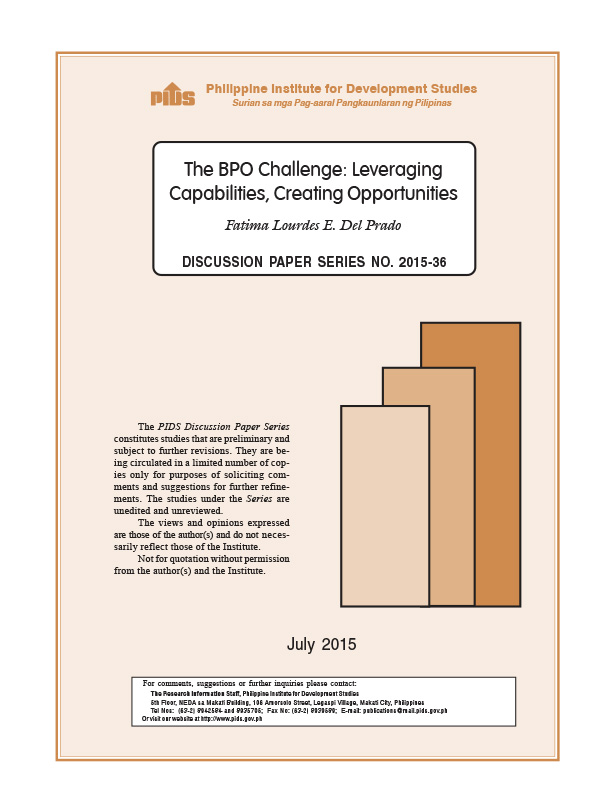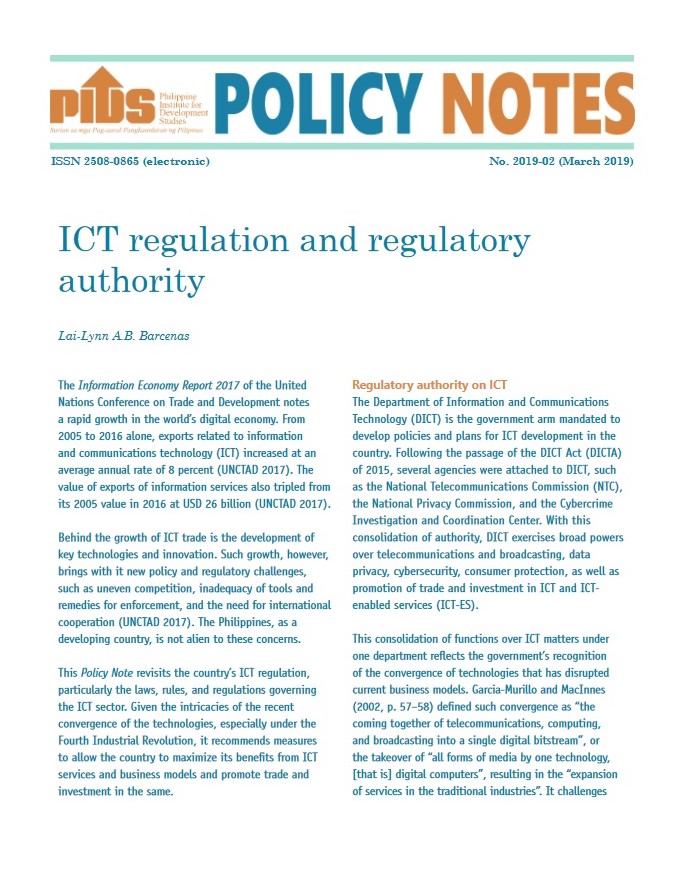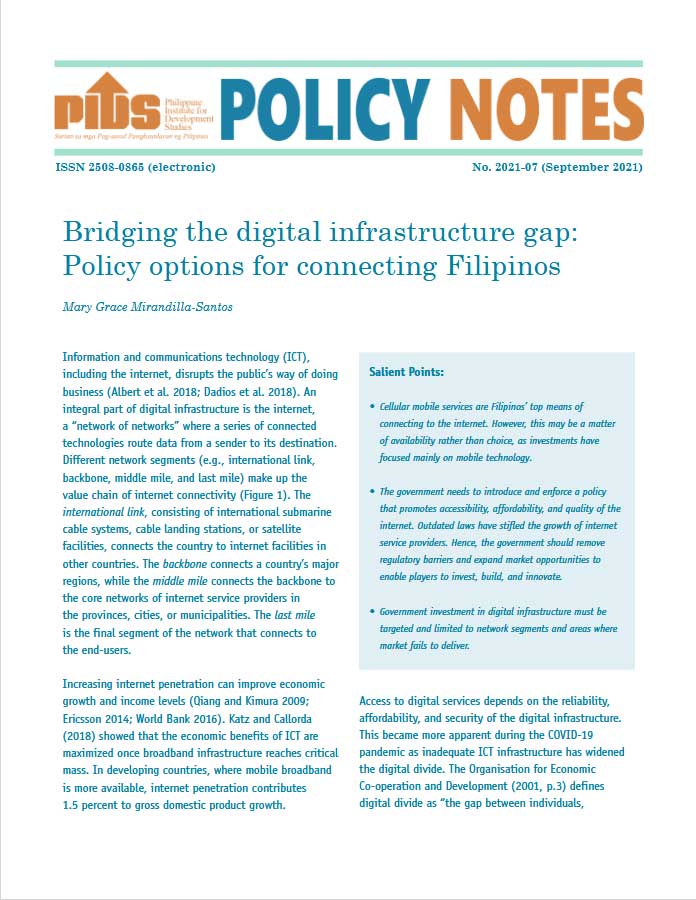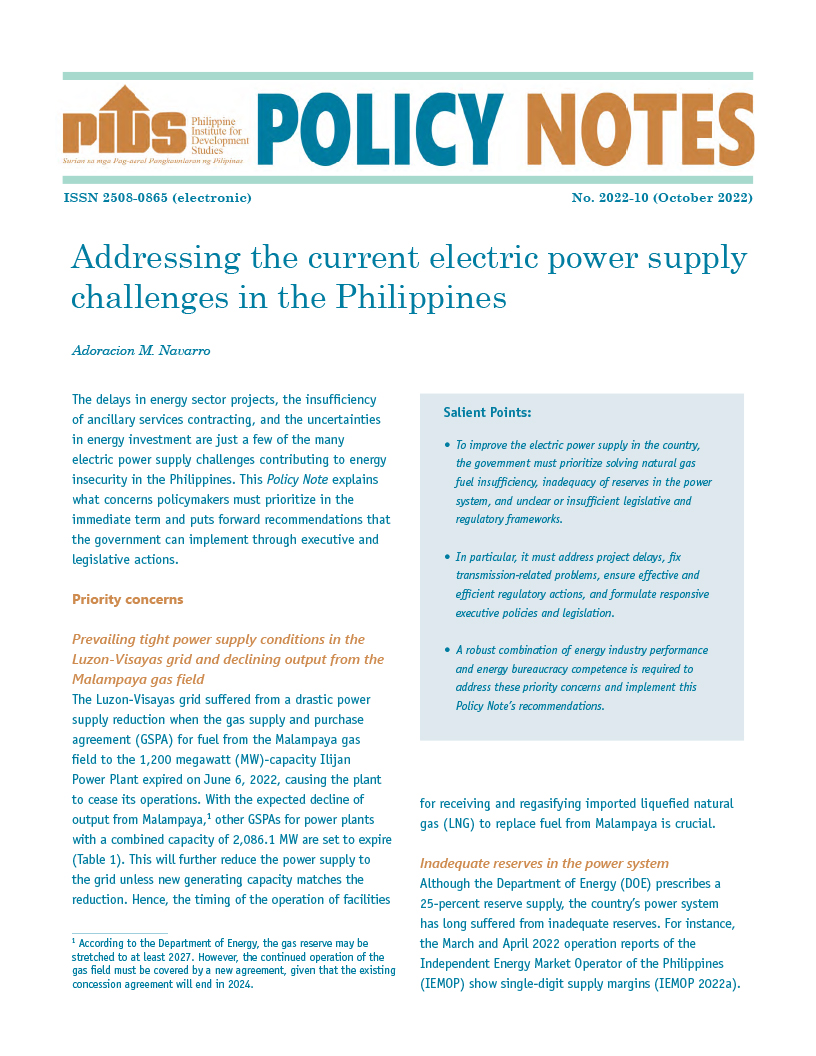As the Asia-Pacific Economic Cooperation (APEC) seeks to promote free trade and economic cooperation in the Asia-Pacific region, cross-border ICT-enabled services and business process outsourcing (BPO) are expected to contribute to economic integration and growth in the region. ICT-enabled services have grown significantly over the years and across many parts of the globe including several developing countries in the Asia-Pacific region. While there may not be a single standard approach to developing the ICT-BPO sector, the successful experiences of developing countries can provide useful insights and practical lessons for countries contemplating to set up their ICT-BPO service industries. Using data from the Philippines, this paper describes the evolution of ICT-BPO services exports in the country and examines the factors that facilitated its transition from providing low-end contact center services to back-office operations, and to higher value-added services.
The paper also reviews some of the APEC initiatives relevant to the growth and expansion of ICT-BPO services in the region. The Philippine experience has shown that IT-BPO services is one area of trade in services where developing countries can take a shot at sustainable development, without relying so much on traditional primary industries and natural resource. Although the presence of an educated workforce and good telecommunication infrastructure do not always guarantee success in this area, the investments in human capital and critical telecoms infrastructure--considered by many as a backbone for other important industries--are more than enough reward for the decision or attempt to pursue and board the IT-BPO bandwagon. There is still enough space and opportunity for other developing countries to "build appropriate domestic capacity" to effectively participate in this sector.
Citations
This publication has been cited 1 time
- Guinigundo, Diwa C. 2018. The globalisation experience and its challenges for the Philippine economy. Globalisation and deglobalisation, 100, 259-272. Bank for International Settlements.













